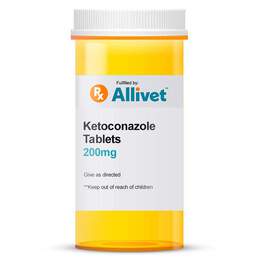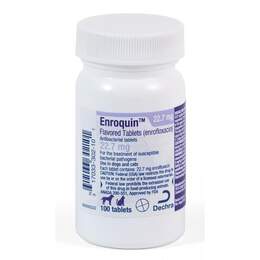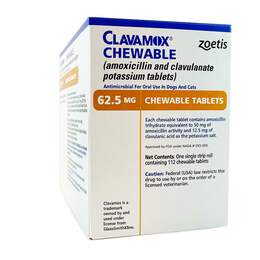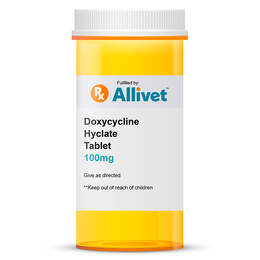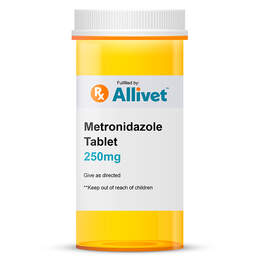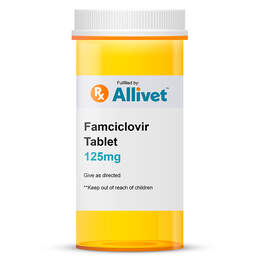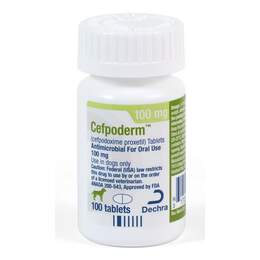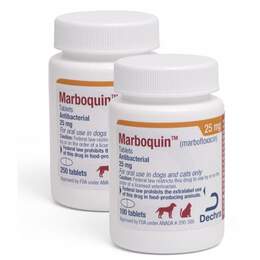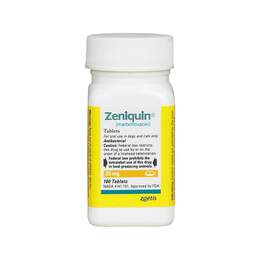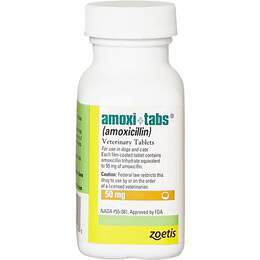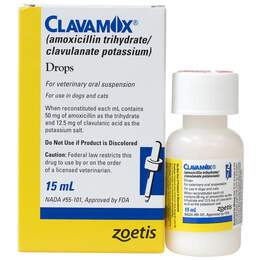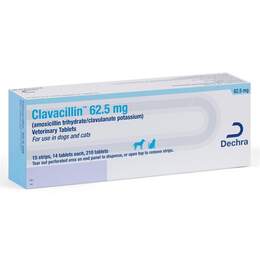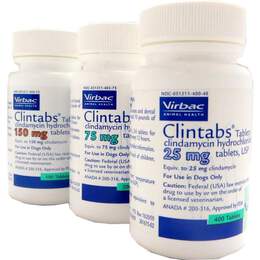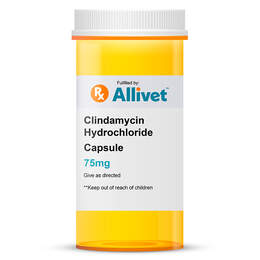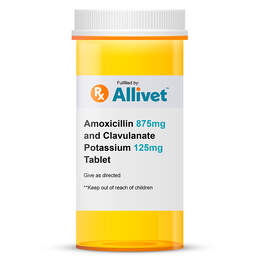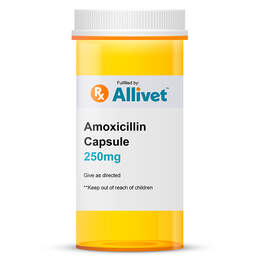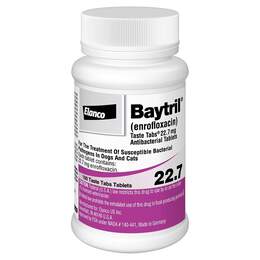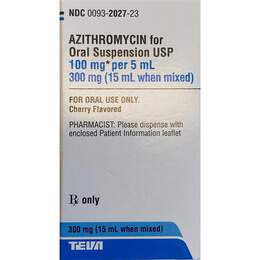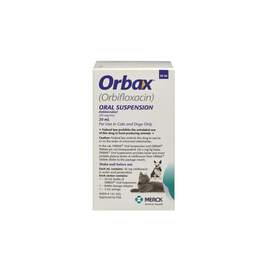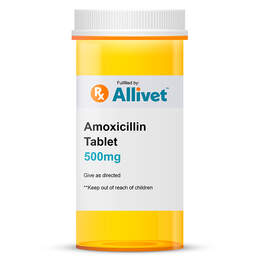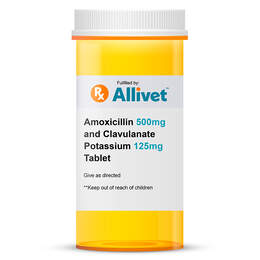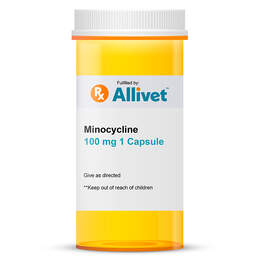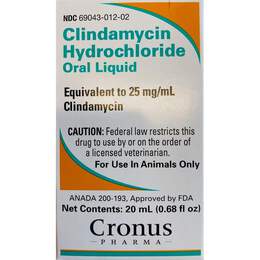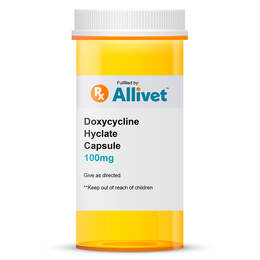Antibiotics for Cats
Why does my cat need antibiotics?
Cats can contract infections easily, and you’ll probably find yourself dealing with an infection at some point over the course of your cat’s life. Cats are prone to a variety of infections. Antibiotics for cats are the best treatment for bacterial infections, but they do not treat viral infections.
A visit to your veterinarian is the first step in diagnosing the infection your cat is battling. Your vet will likely recommend antibiotics for your cat, whether in the form of a liquid antibiotic, an antibiotic shot, an oral treatment, or even a topical antibiotic solution. Bacteriostatic antibiotics for cats inhibit the reproduction and growth of bacteria, and bactericidal antibiotics are effective in killing bacteria. Depending on your cat’s specific condition and symptoms, your veterinarian can discuss the options with you and help you choose the best treatment for your cat. You can discuss any concerns, such as the cost to buy antibiotics for cats or the potential stomach upset that can be caused by antibiotics for cats. Your vet might also suggest probiotics to support your cat’s gut health during antibiotic treatment, which can mitigate stomach issues like diarrhea. Broad spectrum antibiotics for cats can be an excellent choice for eradicating a variety of infections.
Once you’ve obtained a prescription, head to Allivet to order your cat’s prescriptions easily and affordably! You can buy antibiotics for cats online at Allivet by simply giving us your veterinarian’s information to verify the prescription.
What conditions might my veterinarian prescribe antibiotics to treat?
- Urinary tract and bladder infections – Cats can suffer from a urinary infection when bacteria make their way up your cat’s urethra, grow, and reproduce. This can occur in the urinary tract, the bladder, or the kidneys. Your veterinarian can diagnose such an infection and will likely recommend urinary tract, bladder, or kidney infection antibiotics for your cat. Some of the best antibiotics for UTIs and bladder infections in cats include Enroquin, Cefpoderm, Viceton, and Ciprofloxacin.
- Skin disease – Skin infections can have many causes. From food allergies to flea bites, skin infections can be irritating and painful for your cat. Your veterinarian may recommend a topical antibiotic cream for cats or a different type of treatment for skin conditions, or they might suggest one of these oral antibiotics like Zeniquin, Clavamox, Clindamycin, or Zobuxa for abscesses and other skin ailments in cats.
- Respiratory infections – These infections can be viral or bacterial in nature. If your cat is suffering from a respiratory tract infection, URD (feline upper respiratory disease complex), or a cold, and it is caused by susceptible bacteria, these antibiotics can be effective options for your cat: Ketoconazole, Amoxicillin, Albon, and Baytril.
- Periodontal disease and dental infections – Periodontal disease affects the tissue around the teeth, and dental disease is a harmful, even potentially fatal condition. Your cat requires regular dental care, but even with routine cleaning, oral disease can occur. Your cat’s veterinarian is likely to recommend antibiotics to treat your cat’s condition, such as Metronidazole, Clindamycin Hydrochloride, Clavacillin, or Antirobe.
- Eye and ear infections – Two common infections in cats, ear and eye infections are irritating and potentially harmful to your cat. Antibiotics specifically for cats’ eyes can be useful, depending on the condition. Cat eye care is crucial in maintaining your cat’s eyes during and after antibiotic treatment. Cat ear infection medication is also another topic to discuss with your veterinarian. You vet might prescribe antibiotic eye ointment for cats, or they could suggest eye drops or oral antibiotics. For ear infections, an otic medication or an oral drug may be indicated. A few of the top-prescribed eye and ear infection antibiotics are Tresaderm, Azithromycin, Amoxi-Drops, and Ciprofloxacin.
- Gastrointestinal infections – Gastroenteritis can be caused by parasites, viruses, or bacteria. This condition causes gastrointestinal tract inflammation, causing stomach upset and other symptoms. Amoxi-Tabs, Sulfamethoxazole & Trimethroprin, and Metronidazole are some of the antibiotics that are excellent for treating gastrointestinal infections.
Your cat may suffer from a different type of infection, or your vet might assess your cat’s condition and decide that it calls for an antibiotic injection or another course of treatment altogether. Cats can suffer from mastitis, which may be treated with antibiotics, or they might contract chlamydia or Lyme disease, which can lead to secondary infections. Whatever the ailment, a trip to your veterinary clinic is the best way to get your cat on the road to recovery.


